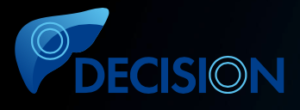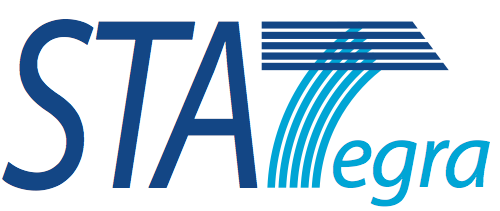TransBio is involved in several research lines including single-cell analysis, spatial profiling, patient stratification, Translational Applications of Whole Genome Sequencing or Oral Microbiome characterization among others.
FUNDING


Abstract: “Hematopoietic stem cells (HSC) are an elusive cell type, whose presence can only be inferred retrospectively, from the outcome of time-consuming transplantation experiments. Since current state-of-the-art does not allow prospective HSC identification, today’s cell and gene therapy technology has been mostly optimized on surrogate progenitor cells, which differ biologically from HSC. The technological breakthrough of this proposal is to capture HSC in the ex vivo culture, achieved by a combination of innovative expansion conditions, iterative cell sorting and multiomics single cell profiling. Rapid, quantitative and qualitative in vitro HSC assessment predictive of in vivo function may become a sustainable alternative to mouse xenotransplantation experiments. Applied to a state-of-the-art toolbox of genetic engineering technologies including clinically-proven lentiviral vectors as well as established and emerging targeted genome editing approaches, our in vitro HSC readout sets new standards in terms of throughput and turnaround time, allowing to efficiently test a multitude of HSC engineering conditions and tailor the most suitable technological approach to a specific disease or therapeutic application. This new precision-based approach to ex vivo HSC gene therapy will be applied to inherited bone marrow failure syndromes and cancer as paradigmatic examples where gene therapy may be used to correct a cell-intrinsic genetic defect or turn hematopoietic progeny into therapeutic vehicles provided with novel functions. Bringing together experts in cutting-edge gene editing technologies, ex vivo HSC manipulation, assessment of HSC responses to genetic engineering and bioinformatics analysis & integration of multi-dimensional single cell data will maximize the chances of delivering safer and more effective next-generation HSC-based gene therapy products, extending the reach of gene therapy to new disease contexts and making the outcome after gene therapy more predictable.“
Our role: Leading the data integration aspects. Experimental design. Bioinformatics on both data analysis and generation of novel methodologies.
Project: “Exploring blood production to understand the most aggressive forms of leukaemia“
Abstract: “Acute myeloid leukaemia (AML) is a highly aggressive form of cancer that begins in bone marrow, where blood cells are produced. In many cases it passes rapidly to the blood. Blood is composed of different types of cells each of which his its functions, from transporting oxygen to fighting infections. Control over the production of blood, which is influenced by multiple factors, is not fully understood, and consequently neither are its alterations in leukaemia. The production of blood cells is controlled by a series of regulatory mechanisms known as transcription factors (TF) and chromatin remodelling factors (CRF). The goal of our project is to identify alterations produced at the level of these factors and which lead to the development of leukaemias, in order to find new treatments that address the cause of the disease. We will use healthy mice and mice with leukaemias in which we will eliminate the expression of these factors to see the effect they have on the illness. Once we have determined key elements in the development of leukaemias in the mice, we will design similar experiments in human leukaemia cells. If we obtain the same results we will develop drugs aimed at altering these TFs and CRFs, which may enable us to identify new treatments for the disease.“
Our role: bioinformatics on both data analysis and generation of novel methodologies.


Project: “Decompensated cirrhosis: Identification of new combinatorial therapies based on systems approaches.”
Abstract: “DECISION strives to better understand the pathophysiology of decompensated cirrhosis leading to acute-on-chronic liver failure (ACLF) at the systems level by taking advantage of already existing large and clinically well-characterized patient cohorts. The ultimate goal is to significantly reduce mortality through combinatorial therapies that are tailored to the specific needs of individual patients. Part of this endeavour is to develop (1) a reliable prognostic test to identify patients that are at risk for a poor outcome following standard therapy but who may benefit from a novel and personalised combinatorial therapy, and (2) a robust response test to predict the success of a novel combinatorial therapy as opposed to more aggressive solutions like a liver transplant.“
Our role: Leading the data integration aspects. Experimental design. Bioinformatics on both data analysis and generation of novel methodologies. Disease trajectories.
HIGHLIGHTS

STATegRa: a Data Integration Framework.
STATegRa is a Bioconductor package with classes and tools for multi-omics data integration. The new biomedical research environment, where many data types (multi-omics) are being generated in a daily basis, opens a new world around data integration. If we are able to combine different data or regulatory layers, we’ll gain information and move to a holistic world view. However, new tools to deal with these large and heterogeneous data sets in an integrative manner are needed. STATegRa package wants to provide not only the tools but a consolidated framework for data integration.

NAGEN 1000: Whole Genome Sequencing for Rare Diseases in Navarra.
The Navarre 1000 Genomes Project (NaGen1000) was launched in 2016 as an initiative promoted by the biomedical research center Navarrabiomed to set the stage for future implementation of sequencing as a routine resource for the development of genomic medicine in SNS-Osasunbidea.
This project, pioneering in the scope of the Spanish National Health System, is based on whole genome sequencing and focused on personalized medicine. It aims to sequence the whole genomes of over a thousand patients with rare diseases or certain types of cancer, and their families, to understand the genetic components of the disease in order to provide better diagnosis and, ultimately, better treatments.
At the Translational Bioinformatics Unit, we provide bioinformatics and computational support to the NAGEN project. We are developing and implementing bioinformatics analysis pipelines (from sequence to annotated variants), data analysis and visualization tools, and clinical data management databases for storing all the information related to the participants, their samples and results obtained.
In addition, we keep constant communication and learning from experiences from other genome analysis centers in Spain such as FPS (Sevilla, Joaquin Dopazo) and CNAG (Barcelona, Sergi Beltran). During 2018 PharmaNAGEN, a project extending the genomic applications to pharmacogenetics started and we are involved in the bioinformatics pipeline and software deployment.
